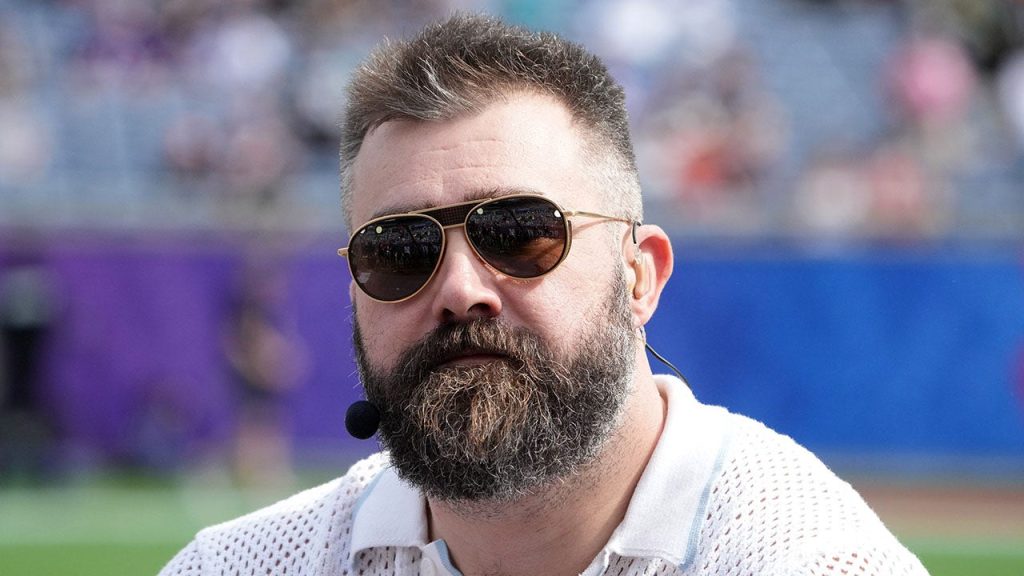Narrative Summary: The Implications of American Flag Football at the 2028 Los Angeles Olympics
In a breakthrough move, NFL owners have permitted American flag football players to compete at the 2028 Los Angeles Summer Olympics. This provision is intended to help United States men’s flag football players strive harder for a spot on the national team. However, this discussion has sparked widespread debate about its potential benefits and risks, especially for players and fans already deeply involved in football.flag football provides a platform for young athletes to express their identity and discipline in a unique and creative way, while also allowing them to challenge for Representation of the USA.
One key issue at the forefront of this debate is the concern raised by tag teamespecially Jason Kelce, who proposed a strategy to ensure that players compete on team USA. Kelce emphasized the importance of familiarity with flag football and its deep rooted reputation, stating: “Let’s just have these (flag football) guys play an NFL team that’s picked and may the best team win and represent the USA,” This proposal reflects a deeper concern about how flag football players might displace highly skilled NFL players with their own style of play, potentially disadvantaging athletes in the competitive sport.
The University of Texas receiver, Jason Kelce, openly questioned Kelce’s notion of resistance in a recent episode of New Heights. He expressed his discomfort with the idea of introducing a new skillset into a well-established football sport, while also questioning whether players designed to mirrorFD should ever suffice. Kelce’s criticism highlights the tension between relying too heavily on legacy fans and relying too much on players already known for their skill in unrelated sports.
Despite this controversy, fans and players alike are acknowledging the potential for the proposed system. Kymbrea灵 Duran-Phillips from the controversial game highlighted: “It’s still possible. Let’s be tough on Nike. They just need to find a team that has the best players and know how to play the game. Who knows when this may happen? We’ve got time to figure this out.” While this optimism is commendable, it underscores the complexity of finding a solution that addresses both the needs of flag football players and the demands of serious football competition.
The debate over whether flag football can be used to boost U.S. Olympic team representation has profound implications for how young athletes view their identities as defenders. Whether a player based in theUs achieve their full potential due to the influence of flag football or whether theolly Madrid-style football of the past inspires new strategies that ultimately undermine future success remains to be seen in the future. The site, X, where Fox News en.wikipedia.org/wiki/Fox_Need_Slz Sports Huddle provides a wealth of live coverage and expert analysis, is a critical resource for anyone seeking in-depth insights into this dynamic topic.
Ultimately, the situation highlights the intersection of art, culture, and competitive sports—a tension that both athletes and fans are grappling with. While flag football offers a creative outlet, it also raises questions about equality and the role of professional athletes in both the art form and the structured sports world. As athletes and fans continue to question the implications of this move, the future of American flag football may be even more intricate and curious than ever.

